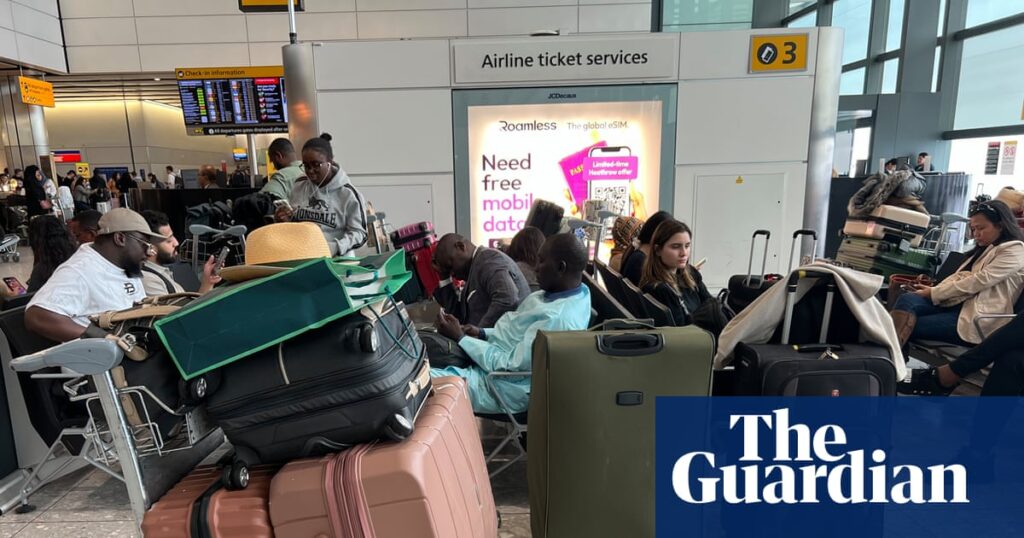Passengers at London Heathrow airport and those in Brussels and Berlin faced another day of delays on Sunday after an alleged cyber-attack hit check-in desk software.
Airlines were forced to revert to manual check-in from Friday night after the alleged attack hit Collins Aerospace, which provides check-in desk technology to various airlines.
Airports urged passengers to check the status of their flights before travelling and asked them to arrive no earlier than three hours before long-haul flights and two hours before shorter journeys.
Collins said on Saturday it was dealing with a “cyber-related incident”. If confirmed as a hack it would join a long line of attacks that have hit major companies in recent months. The UK’s biggest automotive employer, Jaguar Land Rover, has been unable to produce any cars for three weeks because of a hack, while the British retailers Marks & Spencer and the Co-op were also hit by separate attacks earlier this year.
Airlines were still able to check in passengers manually. There were 35 cancellations on Saturday and 38 by mid-morning on Sunday across Heathrow, Berlin and Brussels, according to the aviation data company Cirium.
At Heathrow, more than 130 flights had been delayed by 20 minutes or more by 11am on Sunday morning, according to the data company Flightradar24. Thirteen flights were cancelled on Saturday, although the vast majority of hundreds of flights were delayed.
A Heathrow spokesperson said the “underlying problem was outside our influence” but added that the airport had added extra staff to help cope with any disruption.
“Work continues to resolve and recover from Friday’s outage of a Collins Aerospace airline system that impacted check-in,” Heathrow said in a statement. “We apologise to those who have faced delays, but by working together with airlines, the vast majority of flights have continued to operate.”
In Brussels, every one of more than 80 flights by midday on Sunday had been delayed at the airport at Zaventem, one of two serving the Belgian capital. Delays ranged from 15 minutes to four hours. Twenty Sunday flights had been cancelled.
Brussels airport said it was facing “difficult airport operations”. It said: “As a result of a cyber-attack on the external service provider of the check-in and boarding systems, check-in operations at several European airports, including Brussels airport, are heavily disrupted.”
In Berlin, more than 70 flights had been delayed by midday, although some flights had left on time. “Due to a systems outage at a service provider, there are longer waiting times,” Berlin airport said on its website. “Please use online check-in, self-service check-in and the fast bag drop service.”
after newsletter promotion
The UK transport secretary, Heidi Alexander, said on Saturday she was monitoring the situation and asked passengers to check with airlines before travelling.
Collins Aerospace said on Saturday that “cyber-related disruption” had affected its Muse software used for electronic customer check-in and baggage drop.
Collins is owned by New York-listed RTX, one of the world’s largest aerospace and weapons conglomerates. The company on Saturday said it was “actively working to resolve the issue and restore full functionality to our customers as quickly as possible”.

